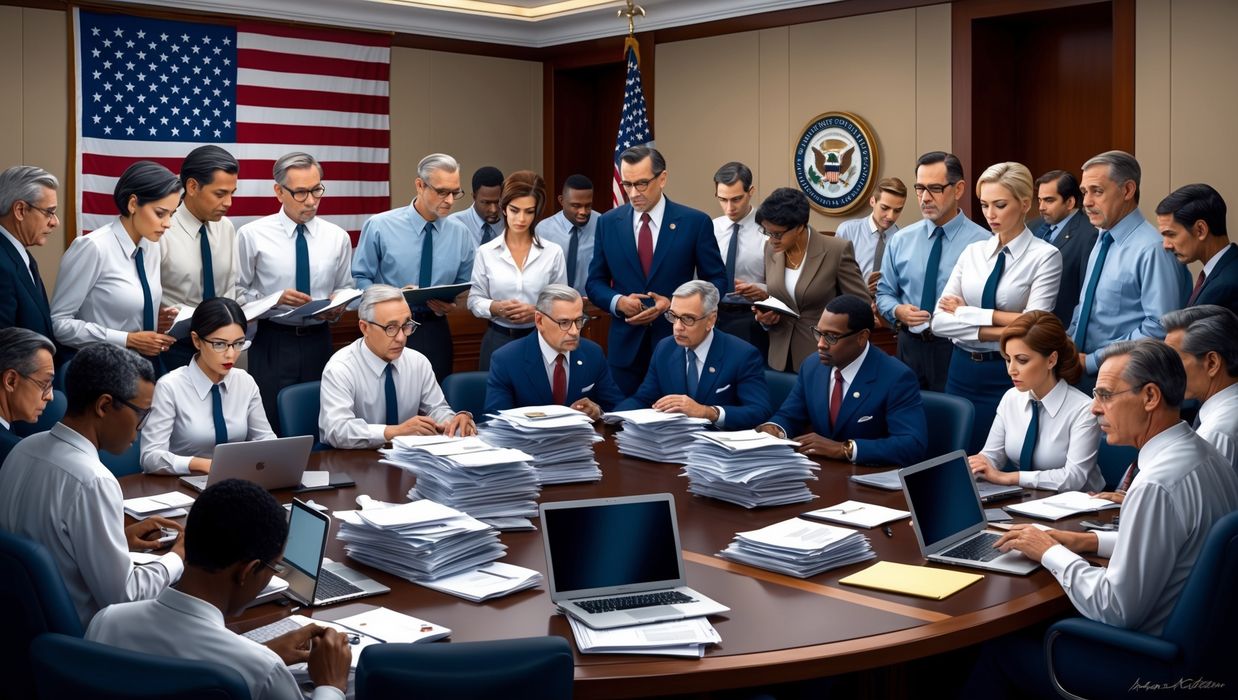
US authorities have introduced immediate controls on the export of a number of advanced technologies, including certain additive manufacturing processes.
In a lengthy document posted on the Federal Register, there are quite a number of very specific technologies being added to the list of export-controlled items. These include tech such as quantum technology, cryogenic cooling, scanning electron microscopes, and much more. Much of the very long document is dedicated to specific tools used to produce semiconductors (chips).
However, buried deep in the document, we find this:
”vi. ECCN 2B910 additive manufacturing equipment. Lacking comparable information on the remaining technology, BIS is implementing deemed export and reexport controls for foreign persons for “technology” and “software” in ECCNs 2D910 and 2E910 for additive manufacturing equipment (2B910).”
Why? They explain:
“BIS is adding ECCN 2B910 to the CCL to control specified AM equipment designed to produce metal or metal alloy components, and “specially designed” “components” therefor for national security, regional stability, and anti-terrorism reasons. A license is required to export or reexport AM equipment, designed to produce metal or metal alloy components, having all of the specified parameters in the List of Items Controlled of ECCN 2B910, and “specially designed” “components” therefor to all destinations as specified pursuant to the national security controls and reviewed under the licensing policy set forth in § 742.4(a)(5) and (b)(10) of the EAR, and regional stability controls and reviewed under the licensing policy set forth in § 742.6(a)(10) and (b)(11) of the EAR, and Anti-terrorism (AT) column 1 of the Commerce Country Chart in supplement no. 1 to part 738 of the EAR.”
[Note: this is a legal document so it includes an enormous amount of references.]
They go further to narrow down the exact technologies involved, which include use of lasers, electron beams or electric arcs, and having a “controlled process atmosphere”. Chamber air is usually managed during LPBF metal 3D printing to avoid oxygen contamination.
They are also interested in systems to monitor meltpool quality, which is important when making production parts at scale.
Finally, they also include the software required to implement all of the above.
What does all this mean? It means that going forward (the rule change takes immediate effect) any US company wishing to ship said equipment or software outside of the US must obtain a license to do so. Licenses will not be granted to export the technology to countries or regions currently banned, which is a separate list and varies from time to time.
The intent is to enable exports only to countries that have similar export regimes to prevent tech from leaking through third party countries into banned areas.
Given the current state of the world, this is all quite understandable. But which companies might be affected?
US-based manufacturers of metal 3D printers of the type described would include 3D Systems, Velo3D, Xact Metal and possible other smaller companies.
Note that companies using binder jet or extrusion technology for metal printing would not be included, such as Markforged, Desktop Metal, Optomec, etc.
The effect on the above companies would likely be a bureaucratic requirement to get the necessary license if they are exporting machines. Almost certainly they are not shipping equipment to banned regions, but they may be shipping to valid regions, and that still requires the license.
For non-US metal 3D printer manufacturers, this should not be an immediate issue. Shipping into the US would not be affected, but at some point those countries may enact similar export restrictions to parallel those of the US.
In the end, it is a bit more paperwork for all these companies, but it’s worthwhile as it will help keep the tech away from the bad guys.
Via Federal Register
